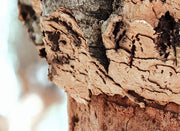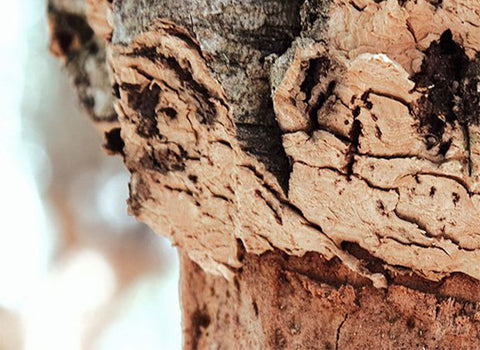- Home
- -
- Sustainability
- -
- Birkenstock and Sustainability
Birkenstock and Sustainability
August 24, 2020

Birkenstock view environmental protection and sustainability as part of their core ethos. They use as many natural and sustainable resources as possible in the manufacture of their shoes, including cork, natural latex, jute, leather, wool felt, copper, and brass.

Birkenstock Cork Harvesting
Birkenstock is renowned for its use of cork – a natural and renewable product that boasts high elasticity, outstanding cushioning, and excellent heat and sound insulation.
The cork is obtained from the bark layer of the cork oak. At least five centimetres of thick bark is stripped from the cork oak – a process that can only be repeated every seven to nine years so that the tree has time to replenish and repair. A single tree can provide 100 to 200 kilograms of cork during its life.
98% of the adhesives used in Birkenstock shoes are water-based and solvent free.

Birkenstock Natural Jute
All Birkenstock footbeds feature two layers of jute for additional strength and flexibility. Jute, like cork, is a renewable resource, with the plant only harvested once they reach 15 to 20 centimetres and then left to regenerate.
Natural jute fibres are roasted, peeled, combed, cleaned, and softened prior to being spun into the braided jute layers used in the footbeds.

Birkenstock Natural Latex Extraction
Natural latex serves as a primary binding agent in the production of the Birkenstock footbed. Natural latex is a natural, renewable material obtained from the resin (latext milk) of matured rubber trees that at at least 6 years old. A single rubber tree can sustainably produce about 80 grams of latex every day for 25 years.
Natural latex exhibits a more efficient energy balance than synthetic latex, which is obtained from crude oil, is also free from pollutants such as solvents or CFCs, and has natural properties, such as a high elasticity-point and superior breathability.


